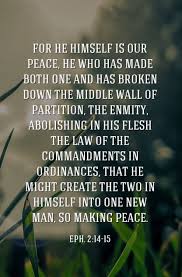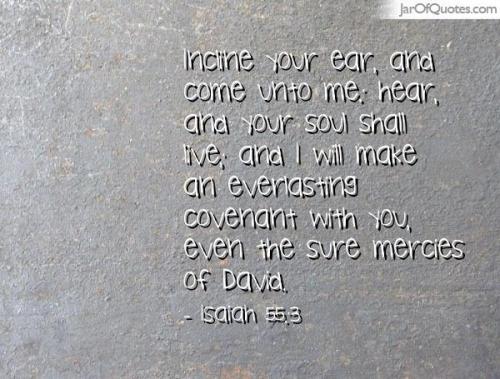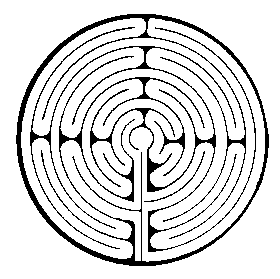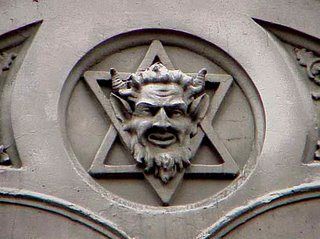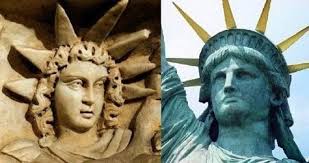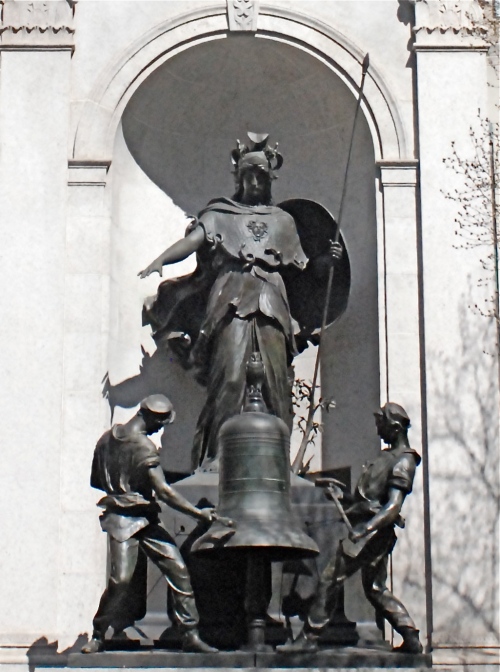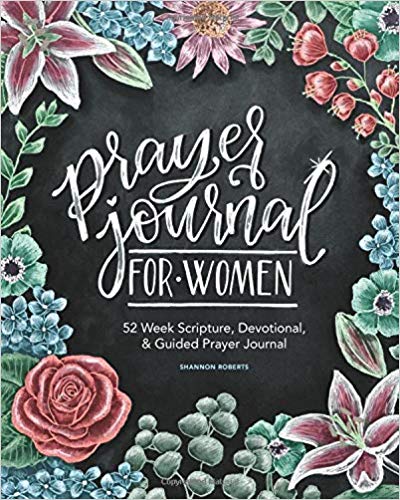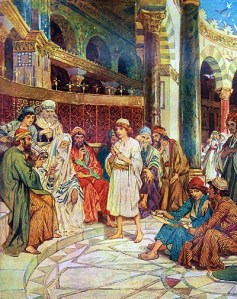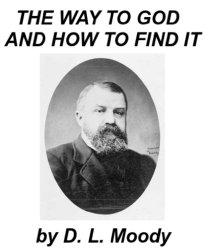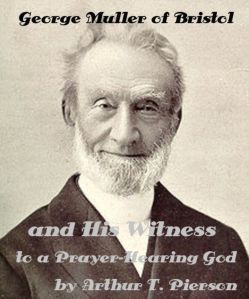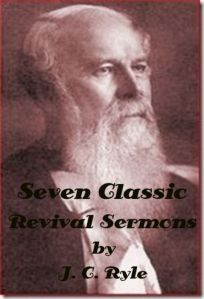Faith Unto Enlargement Through Adversity
by T. Austin-Sparks
Reading: Psalm 118.
The real title of this Psalm is the ‘Passover Hosanna Psalm’, and its theme is faith unto enlargement through adversity. Martin Luther called this Psalm his Psalm, and I think his life is a very good commentary upon it. We know why he made it his Psalm. He might well have been the originator of it, so true was his life to all that is here. It is just an explanation and a summing-up of all his experience. ‘This is my Psalm’, he said.
This Psalm was really born out of experience, and it is that that makes it live. There lies behind it very deep history, especially in two particular connections.
The Background Of The Psalm
In the first place, this Psalm, whose composer no one seems to know, was at least adapted to, if not composed for, the Passover after the dedication of the second Temple. You are probably acquainted with the history of the second Temple. You have to turn, of course, to the Book of Ezra, and alongside of it to the Book of Nehemiah, and then to the prophecies of Haggai and Zechariah; and when you have read those four books, you have the setting of Psalm 118. Read again verses 5 to 16 of the Psalm in the light of that, and you will see what light is thrown upon these verses. Or take a fragment – verse 10: “All nations compassed me about: in the name of the Lord I will cut them off. They compassed me about…” And turn to the Book of Ezra, chapter 4, verses 9 and 10. Here you have a whole host of nations all gathered against Ezra and the building of the second Temple. They compassed him about – all these nations compassed him about – they compassed him about like stinging bees. Thus this description of adversity, of opposition, gives this Psalm a very real, practical application: for the remnant which had escaped from captivity had returned to the land with the building and dedication of the Temple in view, and if this Psalm is a description of things as they were then, it is indeed the story of life out of death.
Life Out Of Death
We must remember that the ‘I’ and the ‘me’ repeated in this Psalm represent the personification of the remnant or of the nation. It is as though the nation were speaking as an individual; it is a collective ‘I’. The nation is here saying: “The Lord hath chastened me sore” – how true that was for the seventy years in captivity – “but He hath not given me over unto death” (v. 18); “I shall not die, but live, and declare the works of the Lord” (v. 17): so that the remnant speaking in these words does really embody this great truth of life out of death and life triumphant over death.
The Lord had promised His people, when they were in that far-off exile and captivity, that He would ‘open their graves’ and bring them out (Ezekiel 37:12-14), and here it is. They are out – out of that grave of captivity; and a grave it was. There is no singing in the grave. “The dead praise not the Lord” (Psalm 115:17) is a phrase of Scripture, and how true it was away there. “Upon the willows… we hanged up our harps… how shall we sing the Lord’s song in a strange land?” (Psalm 137:2-4). ‘The dead praise Thee not.’ But listen! “O give thanks unto the Lord; for He is good; for His lovingkindness endureth for ever” – four times repeated at the very beginning of the Psalm, and then added as the crown at the end. It is a new Psalm on resurrection ground. So the Psalm, to begin with, is one of life out of death.
Release From Bondage
And then quite clearly it is one of release from bondage. These people are so rejoicing in this aspect of their position by the lovingkindness of the Lord, that they are reminded of their earliest great deliverance, and you will see here in the Psalm a reference to the great deliverance from Egypt, and a quotation from the Book of Exodus. They bring the two together – deliverance from Egypt and deliverance from Babylon – and the deliverance from Egypt is always, in the Scripture, termed deliverance “out of the house of bondage”. The Psalm, then, is the Psalm of release from bondage.
Now, bringing that into the rebuilding of the second Temple, you can see how the remnant were straitened, were pressed, by the nations represented by these people who had been brought into Samaria. What a time Nehemiah had from these people in building the wall! He was pressed on every side. What a time Ezra had! How those prophets suffered! The work was held up for more than a decade by reason of this opposition and adversity all around. But the point is that the Temple was built and finished and dedicated, and this Psalm was sung at the Passover which followed the dedication. It says: ‘Let men do their worst, let them oppress from every side, let them oppose as they will. The thing is done: the Lord has done it in spite of everything, and we are out.’
From Limitation To Enlargement
So “the Lord answered me and set me in a large place” (v. 5). From death to life, from bondage to liberty, from limitation to enlargement – into a “large place” – and this represented a very great thing on the Lord’s part. Consider all that the Lord had to cope with – though of course it is putting it in a wrong way to say the Lord ever has to ‘cope with’ anything, for He is so supremely superior to every situation. Yet what was against His people was no small thing. To bring them out into this enlargement meant the overcoming of tremendous difficulties. “The Lord answered me and set me in a large place.” We are reminded of another word, so familiar to us: “Thou broughtest us into the net… Thou didst cause men to ride over our heads. We went through fire and through water; but Thou broughtest us out into a wealthy place” (Psalm 66:11-12). It is a Psalm of triumph over limitation, bringing into enlargement.
God’s Faithfulness Over His People’s Unfaithfulness
The version from which I have quoted uses the word ‘lovingkindness’. The version which is perhaps more familiar has the word ‘mercy’ – “His mercy endureth for ever”. I think there is a note about ‘lovingkindness’ – God’s lovingkindness’ – that touches the heart, when you think of the failure and the unfaithfulness of His own people. What a story it is all the way along, right through the lives of the major and the minor prophets. It would seem that if ever the mercy of God, the lovingkindness of God, could have been exhausted, it would have been so with these people, so terrible were their reactions to the mercy of God. How far they went against the Lord! But here in the end – and with Nehemiah we are in the last Book of the Old Testament in historical order, we are at the end of a dispensation – the great note is: “His lovingkindness endureth for ever”. When they used that language, these people knew what they were talking about. It was not just poetry or sentiment.
It is, therefore, a Psalm of tremendous consolation. We know our weakness, we know our unfaithfulness, we know how we have failed and do fail. The end of the story is – “His lovingkindness endureth for ever”. You see, this is the experience – and, out of the experience, the testimony – of a people who have proved the Lord to be faithful over against all that men could do against them. It is a Psalm worth having. No wonder Luther said, ‘That is my Psalm!’
Sung By The Lord Before Gethsemane
But there is something even more than that. The second thing about this Psalm is that it is believed to have been the Psalm sung by the Lord Himself and by His disciples on the Passover night. Before I knew this, I used to say, ‘I wish I knew what it was they sang when it says that after the supper, “when they had sung a hymn, they went out”‘ (Matt. 26:30). I have discovered that, on very good grounds, it is strongly believed that this was the Psalm that they sang. The Lord Jesus actually sang this Psalm! And His disciples sang it with Him – I wonder if they really knew what they were singing? Let us look at it.
There is no doubt that this Psalm is very largely, if not altogether, related to the Lord Jesus, because it is quoted in immediate connection with Him in several places in the New Testament. For instance: “Blessed be he that cometh in the name of the Lord: we have blessed you out of the house of the Lord” (v. 26). But the titles of the Psalm, the ‘Passover Hosanna Psalm’, is not based upon that incident of the Lord’s entry into Jerusalem, when they cut down palm branches and went before Him singing out of this Psalm: “Hosanna to the Son of David: Blessed is he that cometh in the name of the Lord”, but upon other grounds. And then you know that on several occasions in the New Testament the words are quoted: “The stone which the builders rejected is become the head of the corner” (v. 22). The Lord Jesus used them concerning Himself (Matt. 21:42), and Peter used them concerning Christ (1 Pet. 2:7). So this is in a large sense what is called a ‘Messianic’ Psalm. It is related to the Lord Jesus.
The Triumph Of Faith
Now, if the Lord did sing this Psalm on that dark night of the Passover and betrayal, what a triumph of faith it was! “I shall not die, but live, and declare the works of the Lord” (v. 17). Going straightway to Gethsemane, the trial and the Cross – “I shall not die, but live”. In faith He has leapt the garden, He has leapt the trial, He has leapt the Cross, right over into the resurrection. “I shall not die, but live.” What a triumph of faith through adversity, through suffering! But oh, what a meaning this gives to Gethsemane. Look at the Passover. “This is My body, which is for you” (1 Cor. 11:24). “This is My blood… which is shed for many unto remission of sins” (Matt. 26:28). And they sang a hymn; and after the hymn, the next thing – Gethsemane. Look – “Bind the sacrifice with cords, even unto the horns of the altar” (v. 27). What was Gethsemane? They bound Him and led Him away from the garden, but His interpretation of that binding was of “a sacrifice… even unto the horns of the altar”; not tied to the horns of the altar, but bound with a view to being led toward the altar. That is the meaning here: ‘Bind and lead to the altar.’
This puts a new light upon Gethsemane, upon the bonds, the captivity, does it not? This is not man’s prevailing, this is not man overcoming, this is not man’s triumph. This is the Lamb of God allowing Himself to be led to the altar. For that is the next thing after the singing. He has sung: “Bind the sacrifice… even unto the horns of the altar”; and forthwith He goes. He goes to Gethsemane, then to the betrayal, then to the judgment hall, and then to the Cross. There is the Divine side of all that, but here you see faith taking hold of this human side, as men regard and interpret it, and turning it into the redemption of the world.
The Lord’s Enlargement Through The Cross
In verse 5 again – “Out of my distress I called upon the Lord: the Lord answered me and set me in a large place.” Are these words of the Lord Jesus? Yes: out of His distress He cried: “O My Father, if it be possible, let this cup pass away from Me”. “And being in an agony He prayed more earnestly…” “Father, if this cannot pass away, except I drink it, Thy will be done” (Matt. 26:39, 42; Luke 22:44). “Out of my distress I cried…”; and, although it does not seem that the Lord answered and delivered, an Apostle says that Hewas heard (Heb. 5:7). And how was He heard? Have we the proof that He was heard and answered? “The Lord answered me and set me in a large place.” A large place? Yes, a very large place He is in. How enlarged was our Lord through His Cross! “How am I straitened”, He said–“how am I straitened till it be accomplished!” (Luke 12:50). This was enlargement through suffering: His passion meant enlargement, release from limitation. But it is the voice of faith. As He goes to the Cross, faith goes beyond the Cross and claims the answer of life, not death; enlargement, not limitation. We could dwell quite a long time upon the enlargement that has come to the Lord Jesus through suffering by faith, and this we hope to do in later messages.
Life, Liberty And Enlargement For Us In Christ
But what a testimony this is to the mercy of God. This is the point. I said a little earlier that this ‘I’ of the Psalm is an inclusive and collective ‘I’. In the first place, it is the nation speaking in this personal way, using this personal pronoun “I”. Now it is taken up in relation to the Lord Jesus – “I shall not die”. But, you see, it is not just personal. We know that the Lord Jesus had no need to go to the Cross for Himself. It has often been pointed out that those words used much later by an Apostle – “Who for the joy that was set before Him endured the cross, despising the shame, and hath sat down at the right hand of the throne of God” (Heb. 12:2) – should be translated: “Who, instead of the joy that was set before Him endured the cross, despised shame, and sat down…”, and it takes you to the mount of transfiguration.
The mount of transfiguration was the seal to the perfection of His moral character. There is no transfiguration or glorification apart from moral perfection, and so God gave Him the great witness that He was perfect, that He saw no fault in Him, that He had passed the scrutiny of the eyes of Divine holiness, and there was not a flaw or a blemish in Him: He was perfect. Therefore He had a right to go from the mount of transfiguration right through to the glory for aye. The glory was His: it was declared His, it was shown to be His, it was His. But instead of the joy that was set in front of Him, He turned round and came down and endured the Cross, and if you will look at the context of these words in Hebrews, you will find that it was all because of ourselves – that He was not going to glory without us. Bringing many sons to glory necessitated His coming down, foregoing for the time being His right, His immediate right, to the glory, and enduring the Cross. You remember how, in that same letter to the Hebrews, it is put into the mouth of the Lord Himself: “I and the children whom God hath given Me” (Heb. 2:13). “He is not ashamed to call them brethren” (2:11).
So this glorious Psalm, with its wonderful background in the life of the Lord Jesus and by the Cross of the Lord Jesus, gathers us in. We are in this collective ‘I’. We come into the good of this. “I shall not die, but live.” “The Lord answered me and set me in a large place.” It is true, is it not? It is true. We have that life triumphant over death. He has given that life to us; it is ours. It is not only ours in that general way – “the gift of God is eternal life in Christ Jesus our Lord” (Rom. 6:23) – but it is a testimony for all our life, something for now. It is a life which has come out of His death, and has overcome death in Him. It is for us. Do not let us lose the force of that by familiarity. It is to be a testimony every day. What we have in Christ is to be experienced and manifested every day, and it can be.
But then – and upon this we shall dwell very much more fully – what enlargement we have in Christ from our limitation! How infinitely great is the place into which we have been brought, how immeasurable are the resources, how vast are the ranges, how potent are the forces into which we have come in Christ through His death!
I close by reminding you of this – that while it is all concluded in Him, that where He is concerned there is nothing more to be done in this matter: it is full and it is final, and He has entered into His rest, has sat down at the right hand of the Majesty in the heavens; nothing through which we go can add to that, nothing which we experience can take from it; nevertheless, in a sense – not vicariously, not atoningly, not in the sense of His great redemptive work – but in a sense of fellowship with Him while He is still rejected in this world, and of humiliation in fellowship with Him, the principle still remains: that is, that life and enlargement come through adversity and faith’s triumph therein. It is the law of life. Faith’s triumph in adversity issues in life and enlargement.
We shall see more fully how true that is. The Bible is just full of it. Given a real test of faith, much adversity and opposition, everything hemming in, circling round – ‘all nations compassed me about, they compassed me about, they compassed me about’ – you see, it is reiterated, it is very real – nevertheless, nevertheless, that only constitutes the challenge to faith. Faith looks upon that as its opportunity, and when faith comes out in its declaration over against all that, and says, “I shall not die, but live, and declare the works of the Lord”, that is the highway to a new experience of life and a new range of fullness – to enlargement by way of faith’s challenge and faith’s victory.


